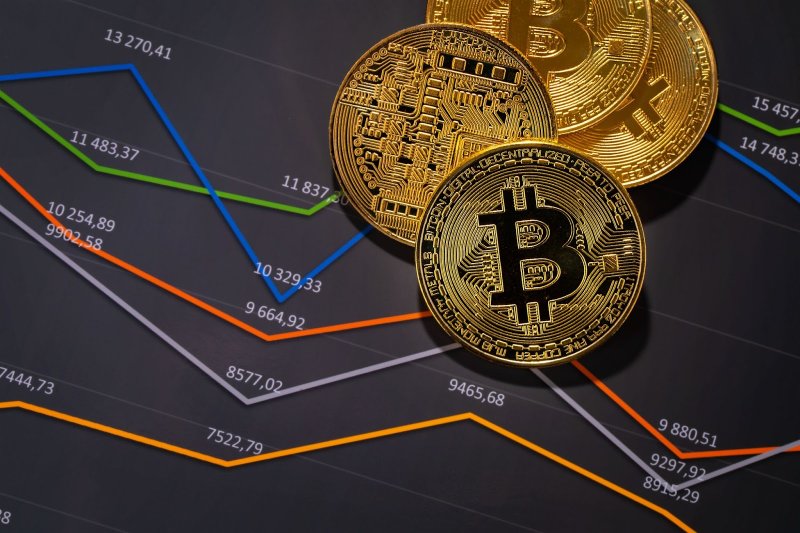Business
Decentralized Masters on Democratizing Finance: How Decentralized Finance (DeFi) Empowers Individuals and Redefines the Financial Landscape

To understand the essence of decentralized finance (DeFi) and its impact on redefining the financial landscape, explore the introduction. Learn about the definition of DeFi and the importance of democratizing finance. Discover how DeFi empowers individuals and revolutionizes the traditional financial system. Get help from Decentralized Masters. They have the tools, knowledge, and support you need to excel in DeFi.
Definition of Decentralized Finance (DeFi)
DeFi, short for decentralized finance, is a groundbreaking concept upending traditional banking. It works on blockchain tech, letting users trade with each other directly without the need for intermediaries.
This new DeFi system gives individuals complete control of their funds and access to lending, borrowing, and trading services. Smart contracts, powered by blockchain, ensure secure and automated transactions – reducing costs and increasing efficiency.
Plus, anyone with an internet connection can join the open financial system. Traditional finance often overlooks those without proper ID or from underserved communities. But DeFi aims to create a more inclusive and accessible ecosystem using blockchain tech.
Let’s look at a real-life example. John, a small business owner trying to get a loan, discovers DeFi’s decentralized lending platforms. He applies using crypto assets as collateral. No human intermediaries mean his loan is approved in minutes, at a lower interest rate than traditional banks.
John’s story shows how DeFi puts financial opportunities within reach of everyone. As this innovative space continues to evolve, we can expect even more solutions to challenge the existing rules and reshape the way we interact with money.
Importance of Democratizing Finance
Finance is key for any economy’s development and growth. Democratizing finance means making financial services available and cheap for everybody, regardless of income or social status. This concept is becoming increasingly important in our world, as it can bridge the gap between the rich and the poor and, thus, promote economic equality.
Through DeFi, people who were earlier excluded from traditional finance systems can now use services like banking, loans, investments, and insurance. This allows them to participate more in economic activities and increase their financial well-being. In addition, it gives marginalized communities a chance to move out of poverty traps by enabling them with financial access.
One creative way to DeFi is using technology. Financial tech companies use digital advancements to create solutions that make financial services more available and easier to use. E.g., Mobile banking apps let individuals open bank accounts, transfer money and pay, all through their smartphones, without needing to visit a bank.
DeFi can also be done through financial education and literacy programs. They can make informed decisions about their funds by providing people with knowledge and skills to understand basic financial concepts like budgeting, saving, investing, and debt management. This empowers them to take control of their financial future and avoid falling into debt or making bad investments.
Governments, too, can play a significant role in DeFi, by implementing policies that promote financial inclusion. This involves forming regulatory frameworks that protect customers and encourage innovation in the financial sector. In addition, governments can tie up with private organizations, such as banks and microfinance institutions, to provide affordable loan options for underserved people.
Understanding Decentralized Finance (DeFi)
To better grasp the principles and advantages of Decentralized Finance (DeFi), delve into the section “Understanding Decentralized Finance (DeFi).” This section explores the fundamental tenets underpinning DeFi, explaining its principles and highlighting its advantages over traditional finance.
Explanation of the principles of DeFi
DeFi, or Decentralized Finance, is a game-changing concept that has caused a stir lately. It harnesses blockchain technology and smart contracts to furnish financial services without the need for intermediaries like banks or brokers. Three principles power DeFi: transparency, inclusivity, and decentralization.
Transparency is the first principle. With traditional finance, transactions can be shady and dominated by centralized authorities. DeFi, on the other hand, runs on a public blockchain. This allows anyone to access and verify transaction details, fostering trust and accountability. No hidden fees or manipulation here!
Another benefit of DeFi is inclusivity. Traditional financial services often exclude certain people due to a lack of documents or credit history. DeFi offers economic opportunities to everyone with an internet connection. Irrespective of location or socioeconomic status, people can open decentralized accounts, borrow funds, invest, and participate in other financial activities.
Decentralization is also a crucial part of DeFi. Traditional finance usually puts power in the hands of a few centralized institutions. With DeFi, decisions are made through community governance. Token holders have a say in the future of the platform they invest in – no single entity has absolute control, reducing censorship or manipulation risks.
The origins of DeFi can be traced back to Satoshi Nakamoto’s Bitcoin whitepaper from 2008. It was primarily designed to create a digital currency independent of government control. But its underlying technology, blockchain, has made decentralized apps – including DeFi – possible.
DeFi is the rebellious hero of finance – making it rain crypto while giving financial freedom a high five.
Advantages of DeFi over traditional finance
Decentralized Finance (DeFi) is shaking up the traditional finance world, providing more inclusive access to financial services, increased transparency and security with blockchain tech, and full ownership and control of assets.
To make the most of DeFi, individuals should educate themselves on the risks and rewards, diversify their investments, and stay informed of the latest developments. With the power to revolutionize financial systems for years to come, DeFi is making bankers nervous since cryptocurrencies realize they don’t need them!
Empowering Individuals through DeFi
To empower individuals through DeFi, the article explores the provision of accessible financial services for the unbanked population. It further discusses the elimination of intermediaries and lower fees as a result and highlights the opportunities for decentralized lending and borrowing. These sub-sections shed light on how DeFi revolutionizes the financial landscape. Decentralized Masters has the desire to empower individuals through DeFi.
Accessible financial services for the unbanked population
Financial inclusion is a real problem, with millions needing access to essential banking services. But DeFi has changed all that! It opens up a range of accessible financial assistance to those who have been traditionally excluded.
DeFi lending platforms let people get credit without needing collateral or paperwork. This means they can start businesses, invest in education, or pay for emergencies without exploiting exploitative options.
Plus, decentralized exchanges give unbanked individuals a chance to join global financial markets. Intermediaries are eliminated, reducing transaction costs and making trading assets easier and earning passive income.
What makes DeFi special is its inclusivity. All you need is a smartphone and internet connection, even in rural areas or in disadvantaged communities. Banking services come right to your fingertips, giving you control over your finances and promoting economic empowerment.
Alex’s story highlights the impact of DeFi. He’s a farmer in a remote village where banking services are limited. He was stuck in a cycle of poverty with no capital to expand his farm.
But through DeFi lending platforms, Alex could secure a loan using his digital assets as collateral. He invested in modern farming techniques and expanded operations significantly. Now, he provides for his family and employs several community members. DeFi has enabled Alex to lift others who were once in similar circumstances.
Elimination of intermediaries and lower fees
Transitioning to DeFi brings about a revolutionary change; it eliminates intermediaries & lowers fees, granting autonomy to individuals. It also promotes cost-effectiveness and greater inclusivity. Moreover, DeFi provides innovative solutions traditional systems do not have. For instance, you can lend or borrow funds directly from others without going through complicated loan application processes.
Opportunities for decentralized lending and borrowing
DeFi is the rebellious teen of the financial world, shaking things up and rewriting the rules with its disruptive awesomeness. Decentralized lending and borrowing allow individuals to take control of their financial transactions without intermediaries.
One key aspect is using crypto instead of traditional banks to access funds or loans. This opens up possibilities for those who don’t have access to banking or prefer a more democratic approach. With these platforms, borrowers use digital assets as collateral, and lenders get interest on idle crypto.
This shows the growing popularity and trust in this system. Plus, it provides greater privacy than traditional banks. Users can borrow or lend with minimal disclosure.
Alice is a real-life example. She needed funds to invest in a project but couldn’t get credit due to her irregular income. She could secure a loan with her digital assets through a decentralized lending platform. This empowered her to pursue her ambitions and gain financial independence.
DeFi is expanding opportunities for lending and borrowing outside traditional banking. It promises inclusivity, transparency, and reduced reliance on intermediaries. People can take control of their finances like never before.
Redefining the Financial Landscape with DeFi
To redefine the financial landscape with DeFi and unlock its potential, explore how it disrupts traditional banking systems, its impact on conventional investment methods, and potential challenges and regulatory considerations. This section sheds light on the transformative power of DeFi and its implications for individuals seeking financial empowerment.
Disrupting traditional banking systems
DeFi is shaking up the financial world. It uses blockchain tech to offer services that banks used to have control over. The need for financial inclusivity and access drives this disruption.
DeFi allows those in underserved regions to get involved in the financial system. It has faster and cheaper transactions, giving individuals control over their assets.
Some changes need to be made to make the most of DeFi’s potential. Regulations should be introduced to protect users and give them confidence. Traditional financial institutions should collaborate with DeFi platforms to benefit both sides. And the public needs to be educated on the advantages and risks of using DeFi.
Impact on traditional investment methods
Cryptocurrency and DeFi have shaken the financial world, changing traditional investment methods. This shift has created new opportunities and obstacles for investors to keep up in today’s digital age.
- 1. Banks and brokers are no longer needed – people can invest directly. This reduced costs and increased access, making it fairer for all.
- 2. Blockchain technology added trust and balanced information. Transactions are safely tracked on public ledgers, increasing accountability.
- 3. Smart contracts automate processes, cutting out mediators and improving liquidity.
- 4. Decentralized exchanges allow peer-to-peer trading, giving more choice and reducing counterparty risk.
Still, traditional investment methods have advantages. Regulations and institutions provide stability. Diversifying across asset classes is crucial in managing risk. Allocating some of your portfolio to stocks or bonds is wise.
Above all, stay informed about trends, tech, and regulations. Learn about the risks of DeFi, and make informed decisions.
Explaining DeFi to your grandparents is daunting but more manageable than the risks!
Potential Challenges and regulatory considerations
Decentralized finance (DeFi) has revolutionized the financial landscape. It comes with potential challenges and regulatory concerns that must be addressed for its success. Let’s explore these in a table:
| Potential Challenges | Regulatory Considerations |
| Lack of clarity | Establish clear guidelines |
| Security vulnerabilities | Robust security measures |
| Scalability issues | Solutions for scalability |
| User experience | Improving user-centric design |
When considering the lack of transparency, it’s essential to emphasize collaboration between governments and industry participants. This will help create frameworks that promote innovation without compromising consumer protection or market stability.
To improve user experience, companies must make their platforms more accessible. This includes simplifying processes like wallet management and providing intuitive interfaces.
Now, it’s time to take advantage of the opportunities DeFi presents. Stay informed and actively participate in this ever-evolving sector. Embrace DeFi with an open mind and seize the chance to make a transformative impact. Take advantage of the unique possibilities it offers!
Real-life Applications of DeFi
To understand the real-life applications of DeFi, delve into the use cases in decentralized lending platforms, decentralized exchanges and trading platforms, and tokenization of assets and investment opportunities. Discover how these sub-sections provide solutions to empower individuals and redefine the financial landscape through decentralization.
Use Cases in Decentralized Lending Platforms
Decentralized lending platforms have revolutionized borrowing and lending. These platforms give individuals access to financial services without traditional intermediaries like banks.
Decentralized lending platforms offer unique features. 1. Accessibility – anyone with internet can borrow or lend. 2. Smart contracts – ensure transparency and automate the loan process.
Pro Tip: Research and understand the risks before participating in decentralized lending platforms. Assess the platform’s credibility. Consider factors like interest rates, collateral requirements, and repayment terms. Plus, you can only lose all your money by leaving home!
Decentralized exchanges and trading platforms
Showcasing the benefits of decentralized exchanges and trading platforms:
| Features | Benefits |
| Transparency | Transparent |
| Security | Highly secure |
| Accessibility | Easy access |
| Efficiency | Quick transactions |
| Lower Costs | Cost-effective |
These platforms offer unique features. For instance, users can enjoy transparent transactions, enhanced safety, easy accessibility, fast transactions, and lower costs than traditional exchanges.
Uniswap was one of the first decentralized exchanges built on Ethereum. It became popular due to its automated market maker (AMM) model. This allowed users to trade tokens without order books. This breakthrough opened up numerous DeFi projects.
Tokenization of assets and investment opportunities: Turning everyday possessions into digital assets. Virtual Monopoly? Why not!
Future Trends in Decentralized Finance
To further explore the future trends in decentralized finance, dive into the potential advancements and innovations awaiting the industry. Witness the seamless integration of blockchain technology in DeFi, revolutionizing the financial landscape. Experience the transformation as individuals are empowered to take control of their financial decisions, making traditional systems obsolete. Decentralized Masters believe that mentorship is the key to success.
Potential advancements and innovations
Decentralized Finance (DeFi) is a rising trend in the financial industry, with immense potential for advancements and innovations. This novel approach has paved the way for various technological breakthroughs, revolutionizing traditional economic systems.
Let’s explore some potential advancements and innovations in DeFi:
| Advancement | Description |
| Interoperability | Allows different blockchain networks to communicate with each other easily. |
| Tokenization | Enables real-world assets to be represented digitally for fractional ownership and increased accessibility. |
| Decentralized Exchanges | A significant shift from centralized platforms, giving users more control over their funds. |
| Automated Market Making | Algorithms to provide liquidity while minimizing price slippage. |
| Yield Farming | Incentivizes users to provide liquidity with attractive rewards. |
| Flash Loans | Allows borrowers to take out loans instantly without collateral. |
| Stablecoins | Address price volatility associated with cryptocurrencies pegged to stable fiat currencies or backed by collateral reserves. |
2018 Compound Finance introduced algorithmic interest rate protocols, allowing users to earn interest on their digital assets without traditional banking institutions. This sparked a wave of similar projects that aimed to disrupt the traditional financial landscape with blockchain technology.
The future of DeFi is bright, with endless possibilities for advancements and innovations. As technology evolves, we can expect even more groundbreaking ideas to emerge, reshaping our understanding of finance. The DeFi revolution has only just begun, and it’s exciting to see its growth and impact in the years to come.
Blockchain integration in DeFi: Because even your financial transactions deserve the drama and suspense of a telenovela.
Integration of blockchain technology in DeFi
Integrating blockchain into DeFi is a game-changer. Here are the main benefits: cost efficiency, like reduced fees; security, like immutability and cryptography; transparency, like publicly verifiable transactions and data; and accessibility, like financial services globally.
Eliminating banks enables peer-to-peer transactions, giving access to financial services to all. This was made possible when the 2009 Bitcoin Whitepaper introduced blockchain tech. Now, developers are building on this foundation and transforming the financial landscape.
Integrating blockchain into DeFi brings great potential for future finance. It brings cost efficiency, security, transparency, and accessibility. It’s clear this integration has an exciting future. In conclusion, the only thing more unpredictable than the market will be your ex’s reaction when they find out you invested in Dogecoin.
-

 Business3 weeks ago
Business3 weeks agoPrakash and Kamal Hinduja: Driving Social and Environmental Change
-
Education4 weeks ago
Fred DuVal: University Leadership as a Critical Resource for Climate Change Research and Life-Saving Solutions
-

 Health3 weeks ago
Health3 weeks agoThe Hinduja Brothers Commitment to Global Health: Empowering Communities Across Borders
-

 Cryptocurrency3 weeks ago
Cryptocurrency3 weeks agoDesigned For The Masses: How Akasha (AK1111) Is Unlocking Crypto For The Next Billion Users
-

 Cryptocurrency4 weeks ago
Cryptocurrency4 weeks agoNexaglobal & Future World Token (FWT): Could This Be the Next Big Crypto Investment of 2025?
-

 Sports4 weeks ago
Sports4 weeks agoWomen’s NCAA Tournament 2025 Sweet 16: Full Schedule, Fixtures, Teams, Bracket, and How to Watch March Madness Basketball Match Live
-

 Startup1 week ago
Startup1 week agoCost-Saving Strategies Every Small Business Owner Should Know to Boost Efficiency
-

 Startup3 weeks ago
Startup3 weeks agoMatthew Denegre on the Art of Deal Sourcing: Finding the Right Investment Opportunities

















